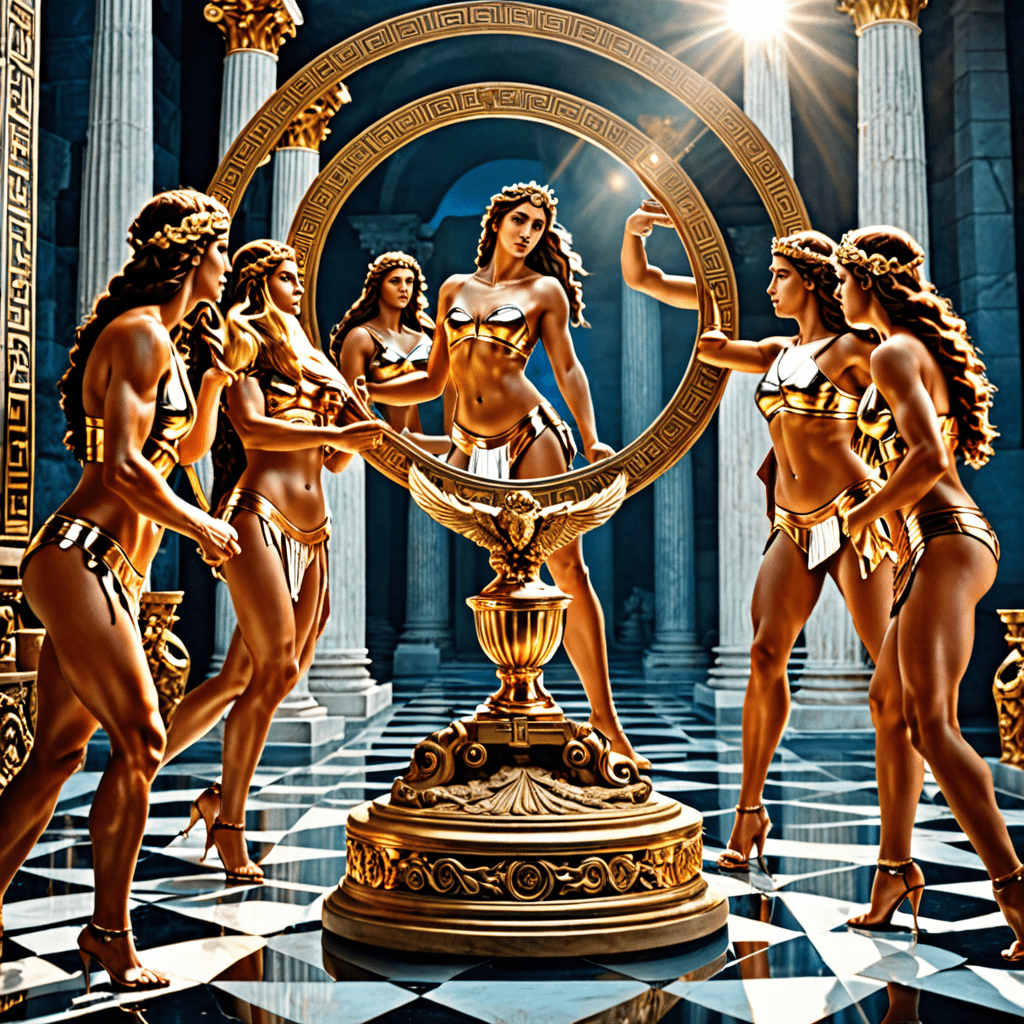The Symbolism of Mirrors in Greek Mythology
Introduction
In Greek mythology, mirrors held significant symbolic meanings and were often utilized by gods and mortals alike. The mirror’s reflective surface played a role beyond mere vanity, offering insights into deeper aspects of the human psyche.
The Myth of Narcissus and Echo
One of the most famous tales involving mirrors is the story of Narcissus and Echo. Narcissus, a handsome young man known for his beauty, fell in love with his own reflection in a pond. Unable to tear himself away, he wasted away and eventually transformed into the narcissus flower.
His story symbolizes self-love and vanity, where the mirror reflects not just physical appearance but also the dangers of excessive pride.
The Mirror of Truth in Greek Mythology
In Greek mythology, the Mirror of Truth was believed to show not one’s physical reflection but rather their inner self, laying bare their true intentions and character. It was often used by gods and goddesses to reveal the real nature of individuals and as a tool for justice.
Athena and the Shield of Perseus
Athena, the goddess of wisdom and warfare, famously carried the shield of Perseus, which acted as a mirror-like surface. This shield not only protected Perseus but also served as a tool for strategic advantage in battle and as a means to defeat foes by reflecting their own gaze upon them.
The shield symbolizes foresight, wisdom, and the power of perception, showing that mirrors in Greek mythology often represented more than just surface reflections.
FAQ: The Symbolism of Mirrors in Greek Mythology
What role do mirrors play in Greek mythology?
Mirrors in Greek mythology often symbolize self-reflection, truth, and introspection. They can reveal one’s inner thoughts, desires, or even future events.
Which Greek myths prominently feature mirrors?
One famous myth involving a mirror is the story of Narcissus, who fell in love with his own reflection in a pool of water. The mirror here symbolizes self-absorption and the dangers of vanity.
What does the mirror symbolize in the myth of Perseus and Medusa?
In this myth, the reflective shield provided to Perseus by Athena helps him defeat Medusa by allowing him to see her without turning into stone. The mirror represents clarity, strategy, and the ability to face one’s fears.
How are mirrors associated with the goddess Aphrodite?
Aphrodite, the goddess of love and beauty, is sometimes depicted with a mirror, symbolizing her connection to vanity, physical appearance, and the deeper reflection of one’s inner desires and emotions.
Do mirrors have any negative symbolism in Greek mythology?
Mirrors in Greek mythology can also symbolize deception, illusions, or the distortion of reality. They might reflect a false image or lead individuals astray, emphasizing the importance of




